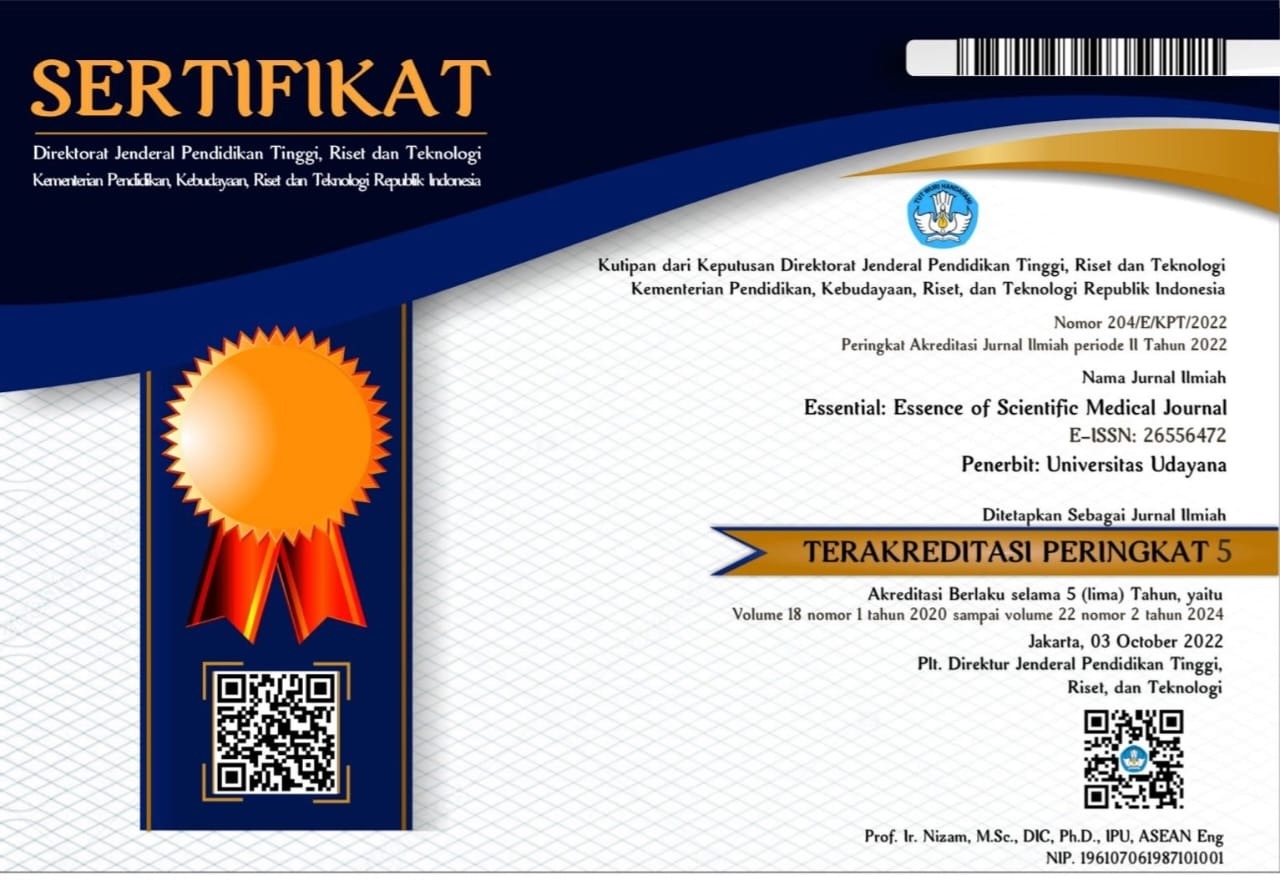Meningkatkan Potensi Terapeutik Kurkumin melalui Formulasi Nano Berbasis Eksosom untuk Fibrosis Paru Idiopatik
Abstract
Introduction:
Idiopathic Pulmonary Fibrosis (IPF) is a chronic lung disease that is included in the category of chronic fibrous interstitial lung disease with unknown causes. The incidence increases with age and is often found in men. Several existing treatments can prevent fibrosis but cannot completely cure IPF. Therefore, there is a need to explore the potential of easily available natural ingredients as alternative therapies. One of the ingredients in question is curcumin contained in turmeric. Exosome-encapsulated curcumin will increase the effectiveness of curcumin as a treatment for IPF.
Discussion:
Idiopathic Pulmonary Fibrosis (IPF) occurs when there is an irreversible accumulation of scar tissue related to genetic, epigenetic, and environmental factors, causing damage to epithelial cells and triggering abnormal activation of epithelial cells. Abnormally activated epithelial cells secrete TGF-?1 which is the main cytokine in fibrosis. Curcumin works by reducing the expression of TGF-? which regulates the deposition of extracellular matrix, including collagen, in fibrotic tissue, and blocking the release of TNF-?, Hydroxyproline (HYP), and PDGF. Curcumin encapsulated in exosomes will be digested more slowly and increase the stability of curcumin in the bloodstream. Additionally, exosomes have the potential to be delivered as aerosols that have similarities to lung surfactants and can be absorbed through respiratory mucus.
Conclusion:
Using curcumin through exosome-based nanoformulations is expected to improve the prognosis in IPF patients.


 SUBMISSION
SUBMISSION
















